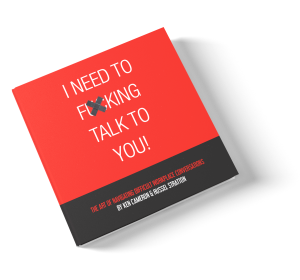The Queen’s Gambit is the latest binge-worthy offering on Netflix. This sparkling new series offers us a tortured genius who overcomes an addictive personality. In the end, she secures her rightful place at the top of a male-dominated profession. It’s also a message about what qualities to seek in a coach.
The seven-part story follows the story of Beth Harmon orphaned in the 1950s. Her grim existence at The Methuen Orphanage for Girls is disrupted when the custodian uncovers Beth’s talent for chess. Beth fosters her genius for the game with tranquilizers, dutifully handed out by the institution’s Chief Orderly. Adopted by an alcoholic woman, her talent is gradually embraced. Soon Beth finds herself traveling the world and rising in the ranks of the chess world.
Beth Harmon tries to manage her meteoric rise, but after her adoptive-mother dies, Beth begins her downward spiral. Unfortunately for her, she spurns the help of several coaches who show up in the aftermath. Fortunately for us, her reluctance to embrace mentorship illustrates why coaching works. It also offers us three clear examples of what you should look for when selecting a coach for yourself.
And yes, Spoiler alert. If you’re intending to stream the show, bookmark this article now and get watching. But be sure to return after the final episode.
1. Your coach doesn’t need to be better than you.
Beth Harmon’s first coach is Harry Beltik. He’s a cocky young man she trounced during her very first state tournament as an unranked novice player. Harry admits that Beth is the superior player. Still, he maintains he has something to teach her and a perspective to offer
Harry’s thinking is in line with some of the world’s most renowned coaches.
Arrigo Saachi, for instance, was the first coach of Italy’s national team who had never been a professional player. In a world where player-turned-coaches ruled, everyone doubted the former shoe salesman. Sacchi met his critics head-on with one of his trademark witticisms: “I didn’t realize that to be a jockey you had to be a horse first.” In the end, his team came within inches of winning the World Cup, losing only because of a shoot-out.
“I didn’t realize that to be a jockey you had to be a horse first.”
Beth takes most of the series’ first six episodes to learn this lesson.

Photo by Mesh on Unsplash
Beth only agrees to Harry’s offer because she has no real friends and the guy she had a crush on doesn’t role that way. Throughout most of their relationship, Beth is not the slightest bit coachable. She’s close-minded, aloof and conceited. Harry resigns on her after she issues one too many barbs about his abilities.
Tragically, Beth misses the most valuable lesson that Harry has to teach her. Harry is the first to point out that her alcohol and pill addiction undermines her ability to play at her peak. Later, Harry reveals the most compelling reason why he’d have been a good coach and friend. He may not be the superior chess player, but he has had personal experience with an alcoholic father.
The act of coaching is 360 degrees, and for (almost) every one of us the lines between work, life and health blur. Beth’s relationship with her work moves from a productive passion to an unhealthy obsession – though it is also her superpower. Because she lacks a healthy parental role model, she can’t discern the positive drive from the negative impact of the inherent isolation her obsession breeds.
Learn from Beth’s mistake. Look for a combination of technical advice, life skills and secure attachment in a coach.
2. Manage the endgame well.
Harry’s not the only coach Beth abandons on her meteoric rise to the top of the chess world.
There’s nothing wrong with ending a coaching relationship when it’s no longer fruitful. But it’s essential to wrap-up in a way that allows you to integrate the learning into your next phase. This is the difference between “terminating” and “ending”. Termination is as final as it sounds. It’s the equivalent of calling security to walk the coach to the door with a cardboard box containing all the advice they’ve ever offered.
“Ending well” implies a mutual parting of ways. “Ending well” honours the coach’s contribution and the coachee’s growth. The best endings involve the coach and coachee collaborating to map the journey they’ve taken together. It’s an opportunity to take stock of how far you’ve come and compile a list of successes or new habits. Ending allows you to save what you’ve learned and, by integrating, to continue to profit by it.
“Ending well” honours the coach’s contribution and the coachee’s growth.
Beth is crap at ending any of her relationships well. She fails to repay her debt to Mr. Shaibel the custodian at the orphanage. She doesn’t bother to keep in touch with her bunkmate Jolene. And she ditches Benny, the New York basement-dwelling faux-cowboy-chess-master.
When you learn to end in a manner that maintains the connection, you also leave open the possibility of return. When Beth finally realizes that she can’t go it alone and asks Benny for his help, it’s too late. Having driven away those who could have helped her, she finds herself alone when she most needs companionship.
Learn from Beth’s mistake. Spend as much time in a post-mortem with your coach as you would with one of your most-valued employees.
3. Team coaching gives the best results.
It’s Benny, the self-consciously ostentatious American cowboy, who tries to convince Beth that the Soviets have got it right. The great Russian chess players, Benny tells Beth, work as a team.
The Russians as keen practitioners of peer coaching. They train together from an early age. They support one another during tournaments. They brainstorm late into the evening when one of them is stuck with an intractable problem. Significantly, it’s the most senior and most decorated player in the entire series who teachers her the most about peer coaching. When he encounters a difficulty in a game against Beth, he calls a recess until the following morning. Beth happens past his room later that evening and overhears him plotting strategy with the men who she’d supposed were his competitors. There’s a relationship between being coachable and being a peak performer.
It’s a lesson that Beth finally absorbs at the climax.
There’s a relationship between being coachable and being a peak performer.
She is playing black in the championship match against Vasily Borgov, the reigning world Grandmaster. He halts the game for an overnight recess. Beth is alone in a foreign country and bereft of peers. She is awakened by a phone call from New York, where the coaches she has cast off along her way have gathered. Her former mentors and friends have spent the evening working out all the permutations that her opponent could play. Each of them is an inferior player on their own. But together they offer Beth a perspective she could never have found on her own. It takes their combined wisdom, along with Beth’s natural poise, to crush the Russian champion.
Learn from Beth’s mistake. Don’t feel bound to a single coach at any one time. Use a variety of mentors to foster well-rounded growth.
No Piece Ever Wins Alone.
Beth’s first coach, the custodian Mr. Shaibel, teaches Beth that when her king is trapped, she must resign. One of the great allures of chess is that it’s never finished. Checkmate doesn’t mean capturing the king. It’s a declaration made the moment before the game is over.
In that sense, the game of chess is never finished. The final moment of each game is forever captured in amber. Throughout the series, we see chess prodigies debating each game. They dissect openings, middle game moves and endgames.
The illusion that prodigies emerge spontaneously with a fully formed mastery of their subject matter is one of Hollywood’s favourite lies. Americans love the story of the maverick, and business loves the story of the solopreneur. Far too many of us internalize that story and try to go it alone.
Chess is over 1500 years old. Its pieces have taught kings, queens, knights, bishops and pawns how to navigate treacherous terrain together. It’s a myth to think that any of them have learned those lessons in isolation. In chess, the King is powerless without the other pieces on the board. And in life, no one in business ever really makes it on their own.
The truth is that the most successful self-made women and men have always had a coach. Usually, they’ve had more than one. In the best situations, it’s the coach who guided, cajoled and challenged them to reach their peak performance. The Queen’s Gambit offers insight into how to select those much-needed mentors.
Ken Cameron is a facilitator, coach and author of I Need To F***ing Talk To You: The Art of Navigating Difficult Workplace Conversations”.








